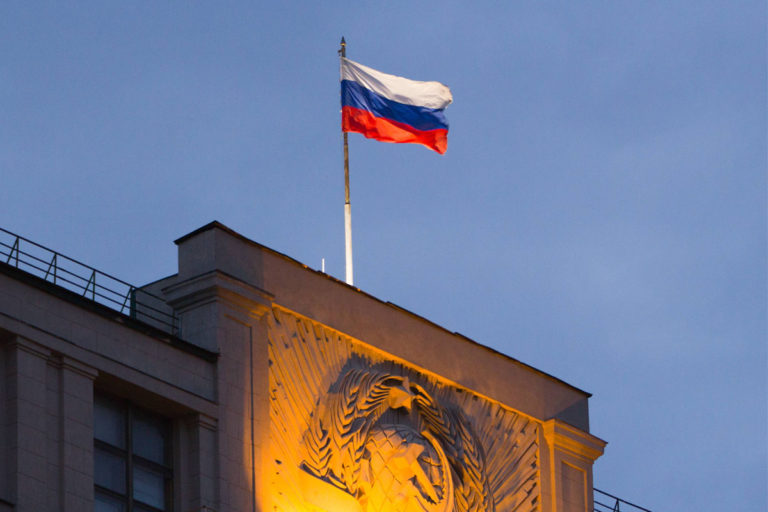Abu Dhabi Institutional Giants Unite to Launch Dirham-Backed Stablecoin
If approved by United Arab Emirates regulators, the dirham-backed stablecoin—regulated by the central bank—will run on the ADI blockchain.

Government Collaboration Signals Policy Shift
Russia’s central bank and finance ministry—previously at odds over crypto regulation—have reached a rare consensus to launch a state-backed cryptocurrency exchange, marking a significant shift in the country’s approach to digital assets.
A Strategic Response to Sanctions and Financial Isolation
The exchange is part of Russia’s broader strategy to navigate Western sanctions by creating alternative financial channels for cross-border transactions, potentially using crypto and digital currencies to maintain trade flows.
Tight Regulation with Global Implications
While offering domestic businesses and investors opportunities, the state-controlled platform is expected to impose strict oversight. The move is being closely watched internationally as it may set a precedent for nations using crypto to assert financial sovereignty.
Russia’s finance ministry and central bank are making significant strides toward formalising its stance on cryptocurrency.
On April 23 2025, Russian media group RBC and Russian news agency Interfax reported that the platform is aimed at super-qualified investors. In a notable development, the country’s central bank and finance ministry have agreed to launch a state-backed crypto exchange. The move marks a potential turning point in Russia’s evolving crypto regulatory framework, with implications for domestic adoption, international trade, and digital financial innovation.
Finance Minister Anton Siluanov said, “Together with the central bank, we will launch a crypto exchange for super-qualified investors. Crypto assets will be legalised, and crypto operations will be brought out of the shadows.” He added, “Naturally, this will not happen domestically, but as of the operations permitted under the experimental legal regime.”
Historically, Russia’s Central Bank and Finance Ministry have taken opposing stances on digital assets. The Central Bank has consistently pushed for stringent regulations, citing financial stability risks, money laundering concerns, and the volatility of cryptocurrencies. On the other hand, the Finance Ministry has advocated for legalising and regulating crypto transactions, particularly as a tool for advancing the country’s financial technology ecosystem.
The new consensus between the two institutions suggests a shift in priorities, possibly driven by geopolitical and economic pressures. With ongoing Western sanctions limiting access to global financial systems, the Russian government is increasingly exploring alternative ways to facilitate cross-border payments. A state-controlled crypto exchange could help businesses bypass traditional financial intermediaries and support international transactions in a more secure and regulated environment.
Launching a national crypto exchange serves multiple strategic purposes for Russia. First, it would allow the government to maintain oversight and control over the digital asset market, helping to prevent illicit financial activities. Second, it could promote using cryptocurrencies, including central bank digital currencies (CBDCs), for domestic and international transactions. Reports indicate that the exchange would be operated under the auspices of the Moscow Exchange, with strict regulatory frameworks set by the Bank of Russia.
This would ensure compliance with national laws and allow authorities to monitor transactions closely. By hosting the platform within an existing, reputable financial institution, Russia aims to instill user confidence and avoid the risks associated with unregulated crypto trading platforms. Additionally, creating a centralised exchange could position Russia as a hub for crypto innovation in the region. With neighbouring countries also exploring digital asset frameworks, Russia’s move may encourage collaborative regulatory models or cross-border crypto settlements, especially with countries less aligned with the US-led financial system.
Launching a regulated crypto exchange could unlock new financial opportunities for Russian investors and companies. Businesses could engage in legally sanctioned digital asset transactions, enhancing transparency and reducing the risk of regulatory penalties. Individuals, too, could benefit from improved access to crypto investments without fearing legal ambiguity. However, this development is also likely to come with tight controls.
The Russian government is expected to limit the types of cryptocurrencies available on the exchange, and there may be restrictions on transactions involving foreign users or entities. Moreover, anonymity—a core feature for many crypto users—will likely be sacrificed for traceability and compliance. Internationally, policymakers and crypto advocates will closely watch the move. On the one hand, it demonstrates how governments can integrate crypto within national financial systems through regulation and control. Conversely, it raises concerns about using digital assets to circumvent economic sanctions and other international laws.
The Russian crypto exchange is not just a financial tool—it’s also a geopolitical signal. As the global economy becomes increasingly multipolar, digital assets emerge as a battleground for influence and autonomy. Russia’s decision to move forward with a national crypto platform indicates that it views blockchain technology as a speculative market and a critical component of future economic resilience.
If approved by United Arab Emirates regulators, the dirham-backed stablecoin—regulated by the central bank—will run on the ADI blockchain.
Solana has outpaced its competitors by recording 33% higher DEX trading volume, 400% more transactions, and 180% active wallet addresses.
Revolut's profit soared to £1 billion in 2024, fueled by a surge in crypto trading and the addition of 15 million new users.
Starting April 30, Binance will mandate that SA users submit sender and recipient information for all crypto deposits and withdrawals.